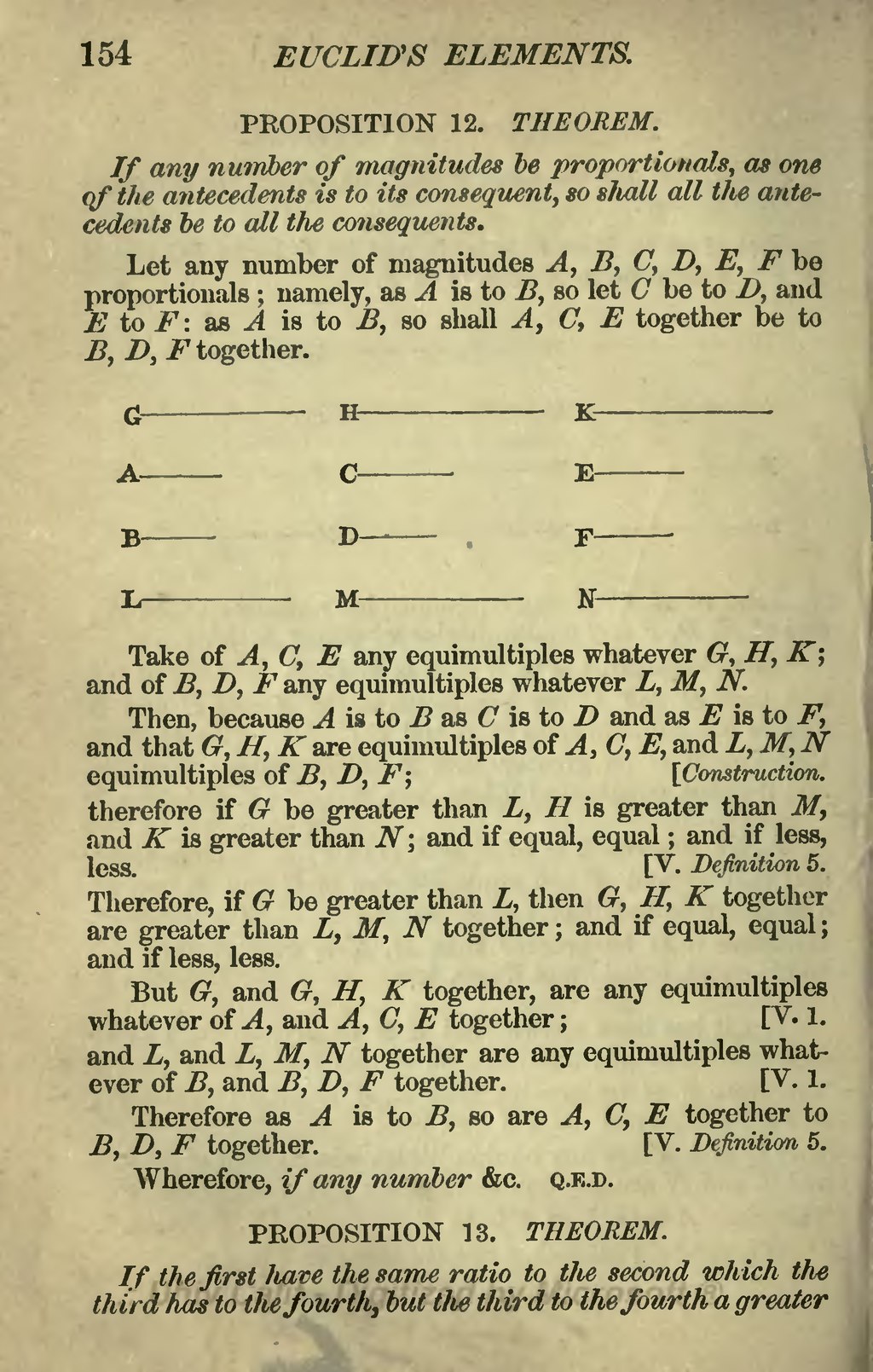PROPOSITION 12. THEOREM.
If any number of magnitudes he proportionals, as one of the antecedents is to its consequent, so shall all the ante-cedents he to all the consequents.
Let any number of magnitudes A, B, C, D, E, F be proportionals ; namely, as A is to B, so let C be to D , and E to F: as A is to B, so shall A, C, E together be to B, D, F together.
Take of A, C, E any equimultiples whatever G,H,K, and of B, D, F any equimultiples whatever L, M, N.
Then, because A is to B as C is to D and as E is to F, and that G, H, K are equimultiples of A, C, E, and L, M,N equimultiples of B, D, F; [Construction.
therefore if G be greater than L, H is greater than M, and K is greater than N and if equal, equal ; and if less, less. [V. Definition 5.
Therefore, if G be greater than L, then G, H, K together are greater than L, M, N together ; and if equal, equal ; and if less, less.
But G, and G, H, K together, are any equimultiples whatever of A, and A, C, E together ; [V. 1.
and L, and L, M, N together are any equimultiples whatever of B, and B, D, F together. [V. 1.
Therefore as A is to B, so are A, C, E together to B, D, F together. [V. Definition 5.
Wherefore, 'if any number &c. q.e.d.
PROPOSITION 13. THEOREM.
If the first have the same ratio to the second which the third has to the fourth, but the third to the fourth a greater

